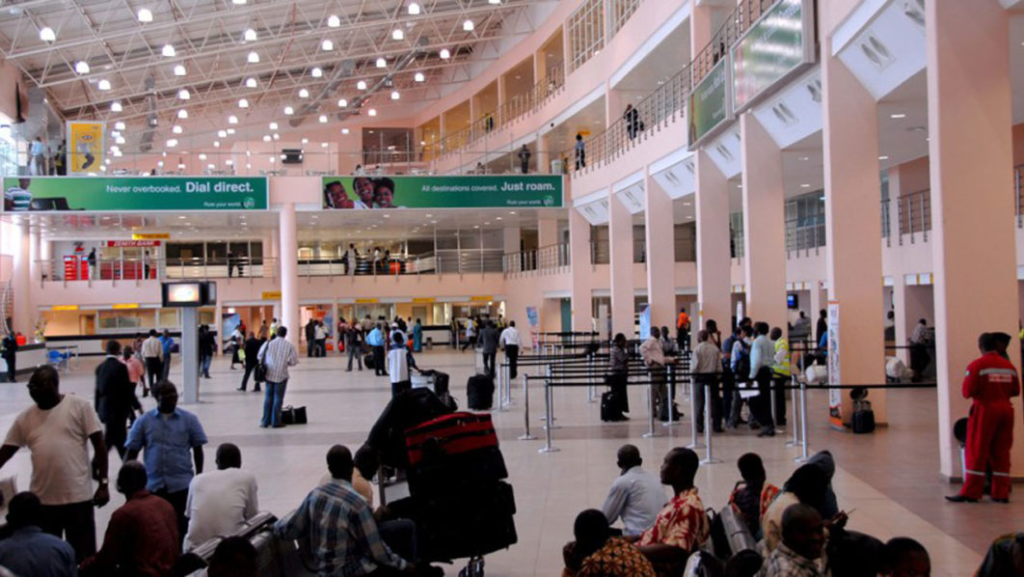Lagos airports have become hotspots for corruption and illegal businesses, creating a dangerous environment for travelers. From ticket racketeering to the sale of fake yellow cards, passengers constantly find themselves caught in a system designed to exploit them. Despite efforts by airlines and the Federal Airports Authority of Nigeria (FAAN) to curb these illegal activities, they continue to thrive.
Ticket Racketeering: The Scam Draining Passengers’ Pockets
Many travelers struggle to book flights in Nigeria, but the real reason behind the difficulty is more than just high demand. Airline staff and touts have turned ticketing into a personal business, selling tickets at inflated rates and blocking access to legitimate buyers.
Last year, Turkish Airlines fired seven Nigerian employees for manipulating ticket reservations. The fraud cost the airline over $600,000, exposing how deep the problem runs.
The racket operates in several ways. Some airline staff block seats on their websites, making them unavailable for booking. Later, these same tickets are resold at a higher price to desperate travelers. In other cases, touts buy up available seats in bulk and resell them for profit. Fraudsters also use fake identification to manipulate airline systems, leaving travelers with no choice but to pay extra.
Travel expert Susan Akporaiye confirmed that some airline employees deliberately hack into reservation systems to issue ghost tickets. This means airlines lose revenue while passengers pay inflated prices for seats that should have been accessible.

Fake Yellow Cards: A Lucrative Business Targeting Travelers
For those traveling to African destinations, obtaining a yellow fever vaccination card is mandatory. However, getting one legally at the Murtala Muhammed International Airport is nearly impossible without facing extortion.
Many travelers report being told that yellow cards are out of stock, only to be offered a “special alternative” for a fee. Passengers are often warned that their travel documents might not be accepted at their destination, forcing them to pay as much as ₦15,000 for a fake card.
Chijioke Nnamani, a traveler heading to Senegal, shared his experience.
“They told me my official vaccination form might not be accepted abroad, but they could ‘help’ by issuing me a card. I refused and presented my form at my destination. It was accepted without any issue.”
This situation proves that the sale of fake yellow cards is not about ensuring health compliance. It is a scheme designed to exploit travelers for profit.
The Luggage Loophole That Puts Flights in Danger
A new scheme is putting passengers at risk in ways they may not realize. Airlines enforce strict baggage weight limits for safety reasons, but some staff members have turned luggage underreporting into an underground business.
Passengers who do not want to pay extra for heavy luggage strike deals with airline employees who record false weight information in exchange for bribes. This manipulation prevents pilots from knowing the actual weight of the aircraft, which could lead to serious safety risks.
Air Peace CEO Allen Onyema recently warned that this practice interferes with flight calculations. If an aircraft carries more weight than the pilot expects, it could affect takeoff, landing, and overall flight stability. This dangerous trend highlights how some airport staff prioritize personal gain over passenger safety.

Harassment at the Airport: Pay or Face Delays
For many Nigerians, airport security does not feel like a process designed to ensure safety. Instead, it has become another way to extort money from travelers.
From the entrance checkpoint to customs and NDLEA screenings, officials often intimidate passengers with endless questions.
- “Where are you going?”
- “What is in your bag?”
- “Why are you traveling?”
While security checks are necessary, many travelers notice that those who pay bribes get through much faster. Some passengers report that after tipping officials, their bags are barely checked.
This situation raises serious security concerns. If money can buy a faster screening process, dangerous items could make it onto flights undetected.
What Happens Next?
Despite FAAN’s efforts to crack down on these illegal activities, corruption continues to thrive in Nigerian airports. Many travelers feel powerless in a system that prioritizes money over integrity.
Is it time for passengers to start demanding accountability? Have you ever faced harassment or fraud at a Nigerian airport? Share your experience in the comments. Visit Inside Success Nigeria for more exclusive reports and follow @InsideSuccessNigeria for updates.




Leave a Reply